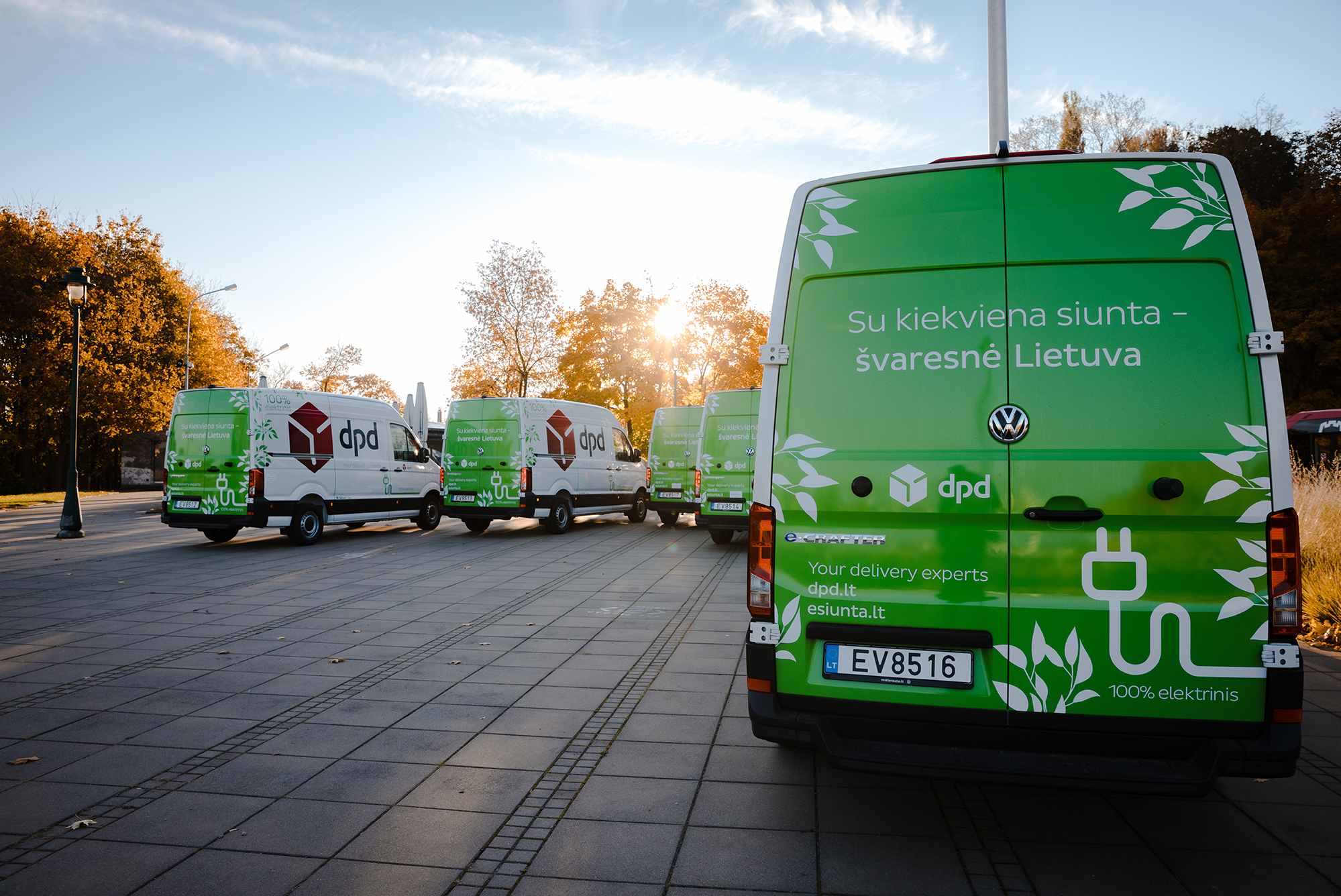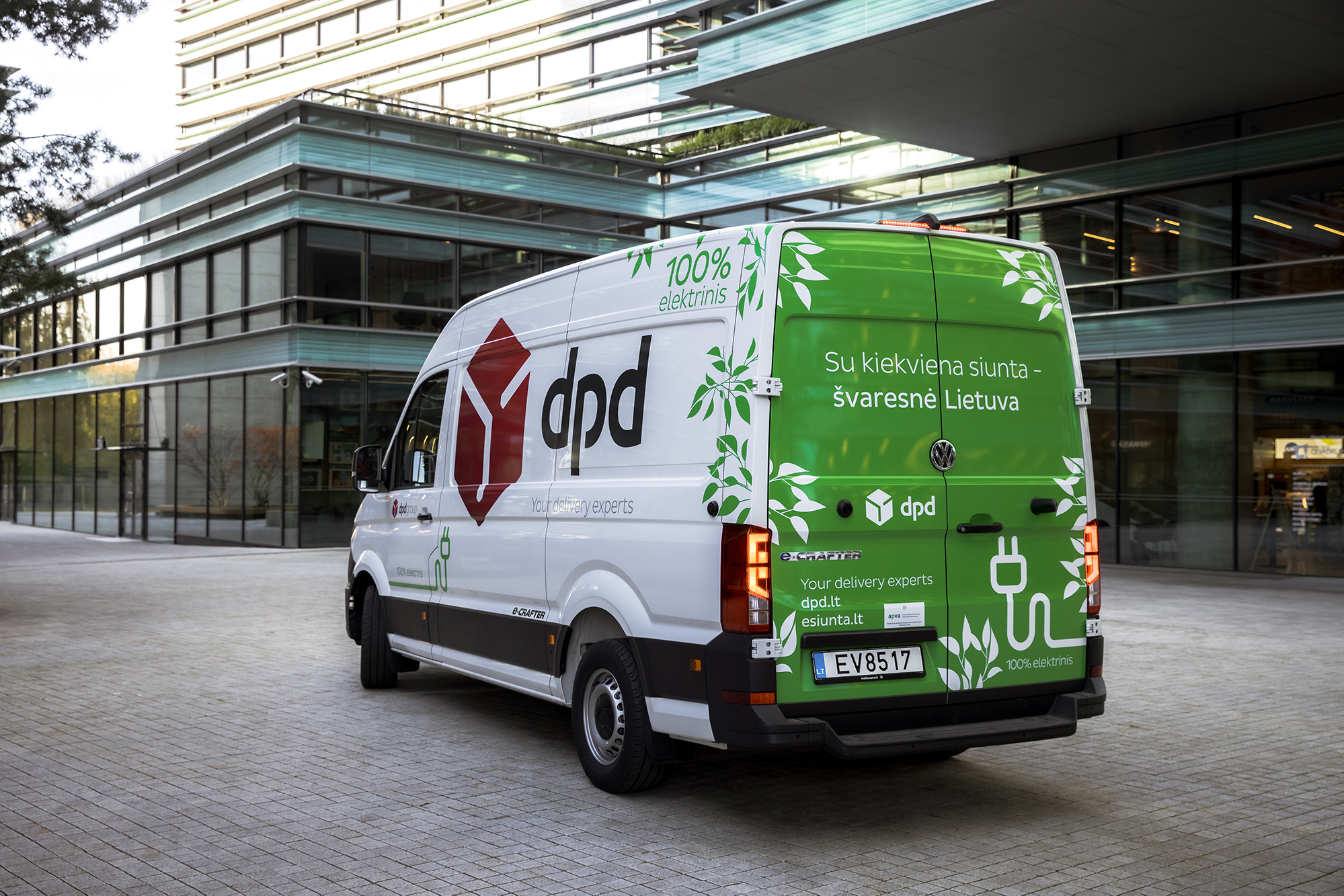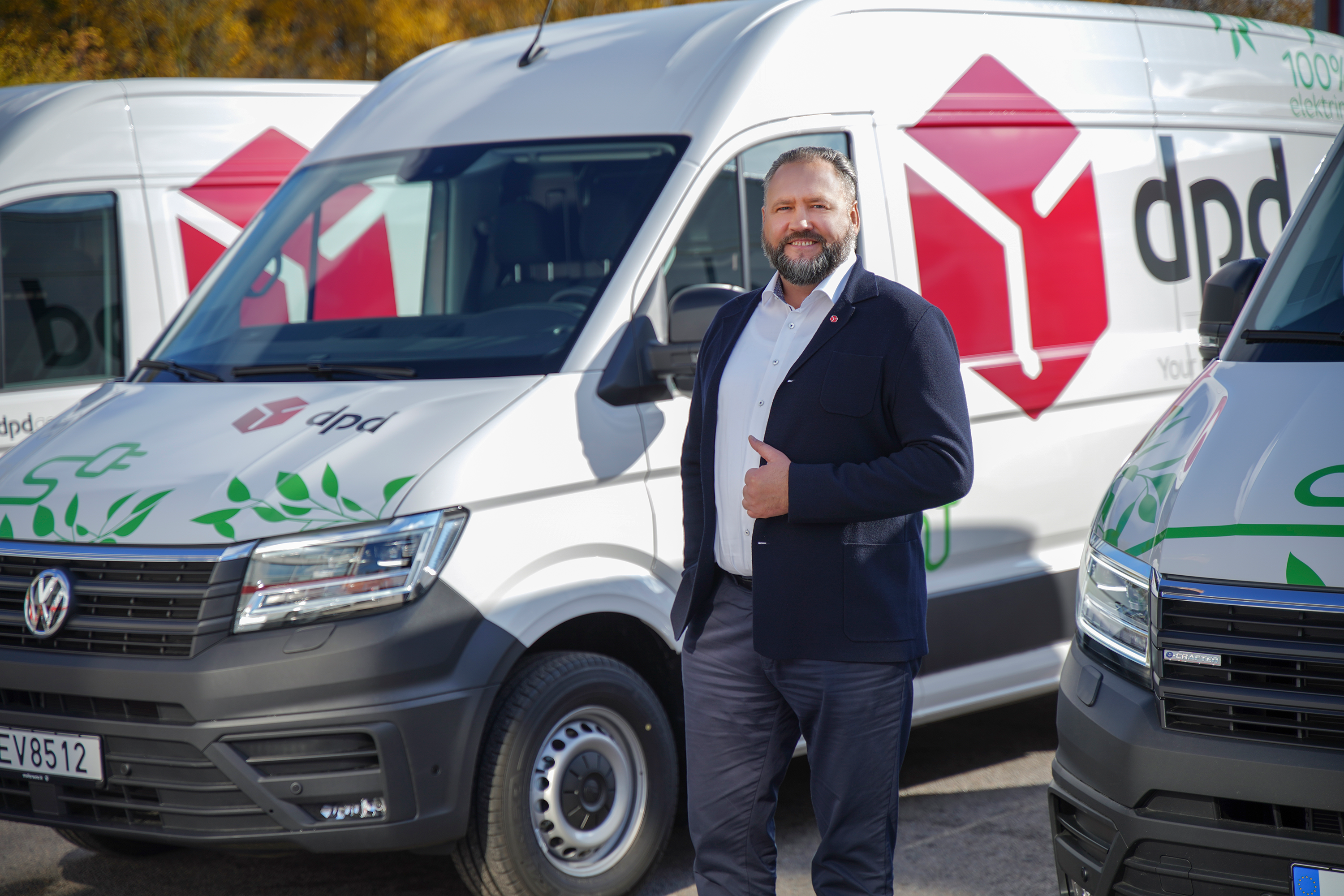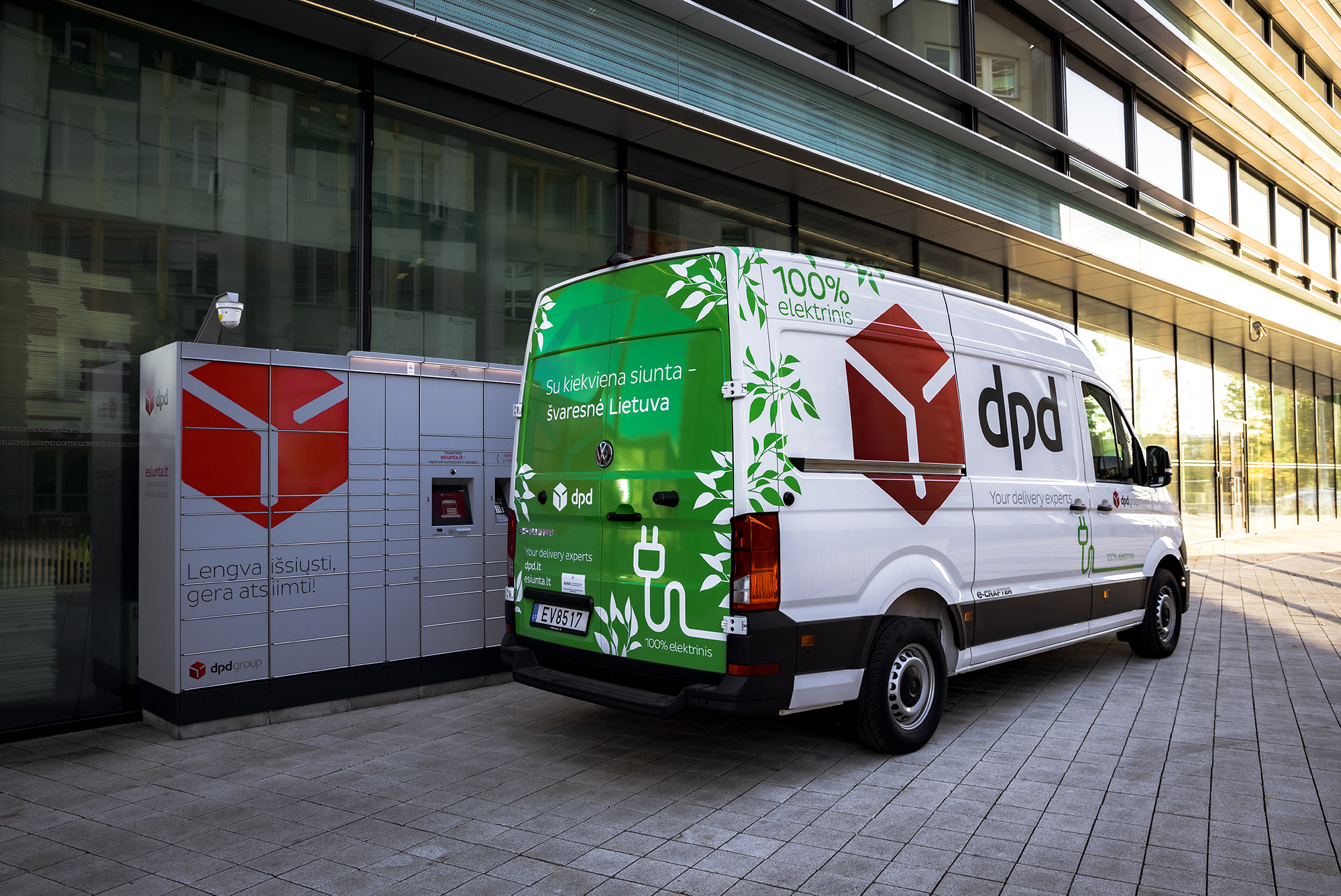As of October 19, residents of Vilnius will start seeing new DPD Lithuania electric vehicles (EVs) on their streets, driven by couriers delivering parcels to people and businesses in the Lithuanian capital. The company has invested roughly 2 million euros in the eco-friendly vehicles and related infrastructure, thanks to which 270 fewer tonnes of CO2 will be released into the environment each year.
The parcel delivery company knows well that as a leaders in its sector it leaves behind a greenhouse gas footprint that contributes to climate change, DPD Lithuania CEO Robertas Vilkaitis notes.
In fact, Geopost deliveries have been more sustainable across Europe since 2012, with the group continually financing projects that help offset emissions elsewhere. According to Vilkaitis, the investment in EVs is a decision that will have real benefits for people in Lithuania too.


“Globally, the transport sector is one of the biggest polluters, responsible for 25 percent of greenhouse gas emissions. That’s why at the group level we have pledged to reduce CO2 emissions per parcel by 30 percent by 2025, and at the country level we’re committed to delivering parcels in a way that is environmentally friendly. The decision to invest in fleet renewal is one more way to achieve the goals we’ve set and ensure a cleaner future for Lithuania,” the company’s CEO says.
As of October, DPD Lithuania couriers will sit at the wheels of 60 new electric vehicles and deliver parcels to the capital city’s residents and businesses. The company and its partners have invested approximately 2 million euros in the EVs and the infrastructure they require, including the installation of 60 charging stations for the new vehicles.
“We feel responsible for our activities and so are helping to promote environmentally friendly business. We hope this step of ours will encourage other companies that work in our segment or other segments to take similar measures,” DPD Lithuania’s CEO notes.
Scale of initiative increased by aid from state climate change programme
Referring to support from the state for the renewal of DPD Lithuania’s auto park, Vilkaitis stresses that the company had already made the decision to invest in electric vehicles before the programme for businesses came about, but it then made good use of the programme and decided to increase the scale of the changes.
“We at first planned to acquire 50 electric vehicles, but after getting the aid we raised the number to 60. The support, coordinated by Environmental Projects Management Agency (APVA) under the Ministry of Environment, came as a pleasant surprise to us.”
Scale of initiative increased by aid from state climate change programme


Referring to support from the state for the renewal of DPD Lithuania’s auto park, Vilkaitis stresses that the company had already made the decision to invest in electric vehicles before the programme for businesses came about, but it then made good use of the programme and decided to increase the scale of the changes.
“We at first planned to acquire 50 electric vehicles, but after getting the aid we raised the number to 60. The support, coordinated by Environmental Projects Management Agency (APVA) under the Ministry of Environment, came as a pleasant surprise to us.”
Investing in EVs is risky


Investing in EVs is risky
DPD Lithuania’s CEO notes that, even with state support, investing in electric vehicles today is still risky in business terms.
“From a purely economic point of view, EVs are not yet a very rational alternative to traditional diesel vans. The cost of environmentally friendly vehicles can be up to two or three times higher. At the same time there are other challenges, like the infrastructure they require and various logistical constraints – the shorter distance an EV can travel on a single charge, the impact of temperature on battery capacity, and so on.”
“For that reason, we’ve had to install additional charging stations, modify our normal routes, foresee additional fast charging solutions throughout the day, figure out how to replace EVs that breakdown or run out of charge, and consider many other aspects that were not an issue for vehicles with standard combustion engines. Still, all those inconveniences were temporary, and having found solutions once, we won’t have to deal with them again in the future,” Vilkaitis says.
Practical advantages over traditional vehicles
He says practical aspects, which have sharply improved in recent times, were one more reason for deciding to invest in EVs.
“The cargo area and capacity of commercial models are now just as good as with standard combustion engines. Finally, automatic gearing and operation with no vibration or noise become extremely relevant when making deliveries all day,” he notes.
Caring for the planet in other ways too
DPD Lithuania also strives to protect the environment in other ways. For example, for over two and a half years now, the parcel sorting micro-centre in Naujamiestis has been receiving parcels for couriers to deliver in the Old Town of Vilnius on foot or by e-scooter or tricycle.
“We’ve also calculated that each DPD parcel locker cuts CO2 emissions by 2.9 tonnes a year. That's why we try to constantly invest in growing our network of parcel lockers. We already have more than 245 of them and will increase that to 305 by the end of this year. This solution alone will help us save almost 900 tonnes of CO2 every year," says Vilkaitis.
Caring for the planet in other ways too


DPD Lithuania also strives to protect the environment in other ways. For example, for over two and a half years now, the parcel sorting micro-centre in Naujamiestis has been receiving parcels for couriers to deliver in the Old Town of Vilnius on foot or by e-scooter or tricycle.
“We’ve also calculated that each DPD parcel locker cuts CO2 emissions by 2.9 tonnes a year. That's why we try to constantly invest in growing our network of parcel lockers. We already have more than 245 of them and will increase that to 305 by the end of this year. This solution alone will help us save almost 900 tonnes of CO2 every year," says Vilkaitis.

